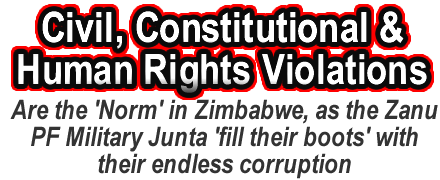 |
 |
Comparative Leadership: Ibrahim Traoré vs Emmerson Mnangagwa
Ibrahim Traoré (Burkina Faso)
- Traoré, a young military leader, took power in 2022 and is known for his pragmatic, security-focused leadership style12.
- He has prioritized military campaigns against jihadist groups, reforms for good governance, anti-corruption, and economic recovery17.
- Traoré’s popularity has risen, especially among youth, for his bold reforms and practical approach to Burkina Faso’s immediate crises17.
- However, he has extended his transitional mandate, postponed elections, and dissolved his government, raising concerns about democratic backsliding27.
Emmerson Mnangagwa (Zimbabwe)
- Mnangagwa, a veteran politician, became president in 2017 after decades in government34.
- He initially promised economic reforms, anti-corruption measures, and international re-engagement4.
- Despite some achievements, Zimbabwe remains plagued by economic stagnation, political turmoil, and allegations of ongoing corruption and repression5.
- Mnangagwa currently faces internal party divisions, public protests, and accusations of seeking to extend his rule beyond constitutional limits5.
Leadership Comparison Table
| Aspect | Ibrahim Traoré (Burkina Faso) | Emmerson Mnangagwa (Zimbabwe) |
| Background | Military, youngest African leader | Liberation war veteran, long-time politician |
| Key Focus | Security, anti-corruption, reforms | Economic recovery, anti-corruption, political stability |
| Popularity | High, especially among youth7 | Waning, facing protests and party splits5 |
| Democratic Record | Extended transition, delayed elections27 | Accused of seeking unconstitutional third term5 |
| Economic Progress | Early reforms, results pending7 | Limited progress, ongoing crisis5 |
Conclusion
Traoré is widely seen as a bold, pragmatic leader who has inspired hope in Burkina Faso, especially for his decisive action on security and anti-corruption17. Mnangagwa, despite initial reform promises, now faces widespread criticism for economic decline and attempts to prolong his rule5. While both have authoritarian tendencies, Traoré is currently viewed more favorably as a leader who addresses immediate national challenges and resonates with the public, particularly the youth17. However, the long-term effectiveness of his leadership remains to be seen.
